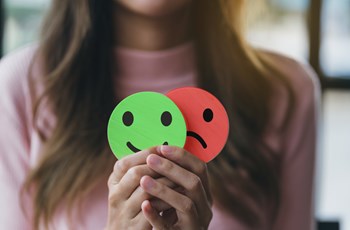
An eye-opening discussion and review of mental health case histories with Alyssa Burns-Hill, PhD in the webinar Perspectives on Mental Health And Hormones takes practitioners through the hormone looking glass for a deeper understanding of depression and mental illness.
From Burns-Hill's perspective, mental health is not just the preserve of mental health professionals, but a global health problem that all specialists – from family practitioners and psychiatrists, to neurologists and social workers – ought to be concerned about.
She points to the 2010 Global Burden Disease Study that identified the most predominant mental health problems as depression and anxiety, which are symptoms physicians see in practice every day. Yet many people remain untreated or locked into a standard medical approach that focuses on the illness rather than the individual.
As a practitioner of holistic medicine, Burns-Hill believes the conventional medical model has become so reliant on technology that diet, stress, lifestyle and relaxation are routinely ignored. When patients say they can't sleep, or are dealing with job stress, anxiety or depression, providers should be looking at the whole person, she says, including their physiology – and hormones in particular.
When it comes to mental health, stress factors
|
Following the strength of her convictions, she is a long-time proponent of salivary and blood spot testing to detect sex, adrenal and thyroid hormone imbalances. These three major hormone systems are absolutely vital to mental and emotional health and yet generally overlooked by mainstream medicine.
Burns-Hill advocates documenting lab levels in concert with patient symptoms to provide "both quantitative and qualitative test results" that help her tailor treatment to patient needs with impressive results.
The benefits of this approach are clearly in evidence in three compelling case histories drawn from her UK-based patient practice. Rejecting old-school approaches that isolate the disease from the patient actually living it, she presents her patient histories from within a framework of mind-body perspectives:
Body-Mind as defined by "alterations in endogenous hormone levels resulting in mental health issues."
Mind-Body as defined by "mental health issues caused by hormone- related illness."
Body-Mind as defined by "behavioral/mental health issues as a result of hormone therapy or treatment."
For example, in the first Body-Mind case history, we meet Rebecca, a 46 year-old IT manager with "really bad PMS," terrible mood swings, irritability, anxiety and severe sleep issues. She’s already got thyroid problems and a raft of symptoms like dry skin, water retention and allergies.
Burns-Hill lets us in on her intuitive thinking process around the patient herself, a consideration of needs and priorities, and which hormone tests to run on Rebecca. Test results are shown to reveal imbalances of all three major hormonal systems with estrogen dominant and progesterone low, adrenal stress hormones high, and thyroid levels down despite medication.
Burns-Hill outlines her treatment approach in generous detail. In every case it is the holistic natural approach that looms large, specifically:
- Stress reduction techniques like yoga and meditation
- Improved diet bolstered by individualized vitamin, mineral and amino acid supplements
- Lifestyle changes as fine-tuned as switching to toxin free laundry detergent and fluoride free toothpaste
- Suggested use of bioidentical hormones as needed
Six weeks later Rebecca reports none of her usual symptoms: "mood perfect," just a tiny bit of water retention and no more dizziness. After changing her soap products, she has woken for the first time without dermatitis on her face. In addition, the 5HTP and meditation is helping her sleep, and she hasn't felt this good in ages!
The other two case studies presented here: a mid-life male who has been on antidepressants since he was seventeen, and a menopausal woman whose complete hysterectomy is shown to be a big contributor to her chronic depression, round out this essential tutorial on the hormonal links to mental health and wellness.
The not-to-be-missed recorded webinar conversation on Perspectives on Mental Health And Hormones challenges providers to consider mental health conditions from a fresh viewpoint – through the lens of hormone balance.
